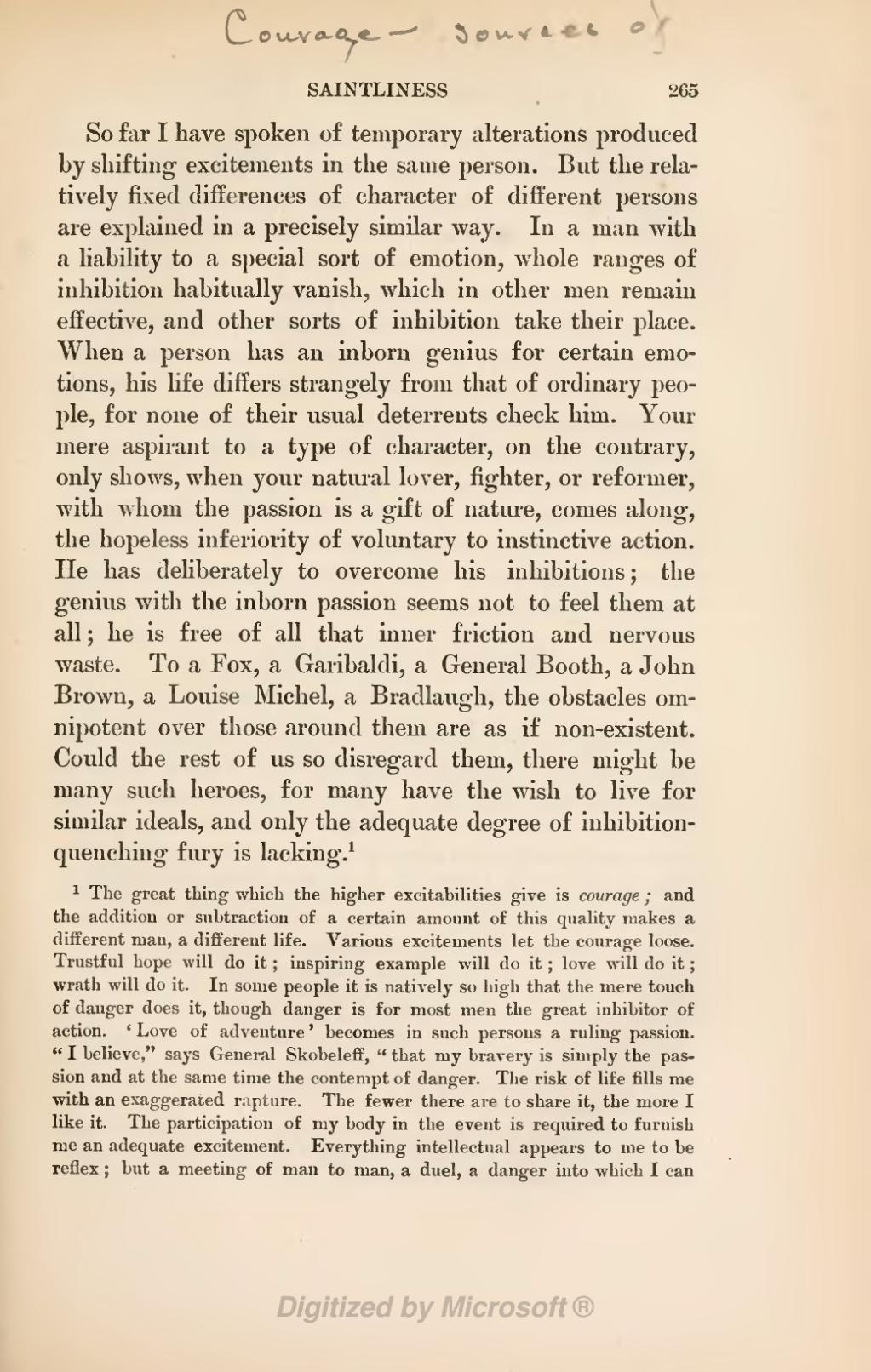So far I have spoken of temporary alterations produced by shifting excitements in the same person. But the relatively fixed differences of character of different persons are explained in a precisely similar way. In a man with a liability to a special sort of emotion, whole ranges of inhibition habitually vanish, which in other men remain effective, and other sorts of inhibition take their place. When a person has an inborn genius for certain emotions, his life differs strangely from that of ordinary people, for none of their usual deterrents check him. Your mere aspirant to a type of character, on the contrary, only shows, when your natural lover, fighter, or reformer, with whom the passion is a gift of nature, comes along, the hopeless inferiority of voluntary to instinctive action. He has deliberately to overcome his inhibitions; the genius with the inborn passion seems not to feel them at all; he is free of all that inner friction and nervous waste. To a Fox, a Garibaldi, a General Booth, a John Brown, a Louise Michel, a Bradlaugh, the obstacles omnipotent over those around them are as if non-existent. Could the rest of us so disregard them, there might be many such heroes, for many have the wish to live for similar ideals, and only the adequate degree of inhibition-quenching fury is lacking.[1]
- ↑ The great thing which the higher excitabilities give is courage; and the addition or subtraction of a certain amount of this quality makes a different man, a different life. Various excitements let the courage loose. Trustful hope will do it; inspiring example will do it; love will do it; wrath will do it. In some people it is natively so high that the mere touch of danger does it, though danger is for most men the great inhibitor of action. 'Love of adventure' becomes in such persons a ruling passion. "I believe," says General Skobeleff, "that my bravery is simply the passion and at the same time the contempt of danger. The risk of life fills me with an exaggerated rapture. The fewer there are to share it, the more I like it. The participation of my body in the event is required to furnish me an adequate excitement. Everything intellectual appears to me to be reflex; but a meeting of man to man, a duel, a danger into which I can
